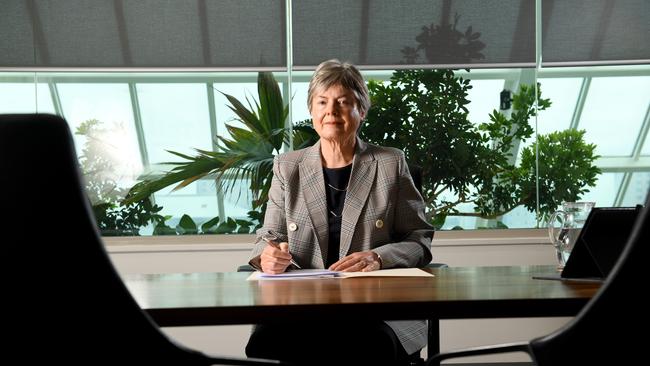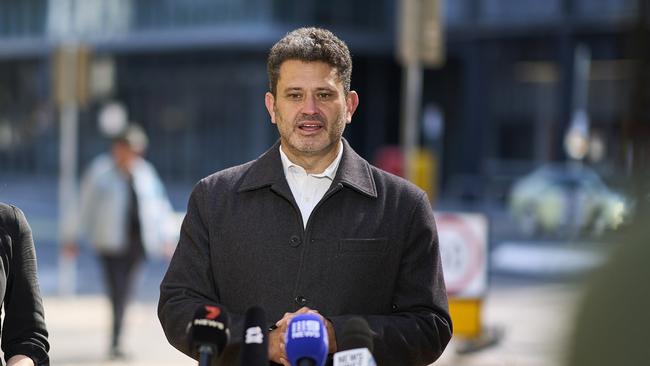ICAC calls for laws to cut ties between SA Ombudsman, DPC and Attorney-General’s office
Investigations could be compromised and whistleblowers changed without law changes affecting two of the state government’s most powerful departments, she says.
SA News
Don't miss out on the headlines from SA News. Followed categories will be added to My News.
Investigations into politicians and public sector employees could be compromised – and whistleblowers exposed – because the SA Ombudsman is “so closely aligned” to two state government departments, Independent Commissioner Against Corruption Ann Vanstone warns.
Ms Vanstone wants laws changed to allow the Ombudsman to break free from its reliance on the Department of Premier and Cabinet and the Attorney-General’s department.
At present all of the Ombudsman’s information – every complaint, report and investigation as well as letters and emails, and information about whistleblowers – is stored and managed by the AG’s department.
The Ombudsman also relies on the department for human resources, procurement and finance functions.
And while it can directly employ its own staff, it can only do so with the consent of the AG.
The Ombudsman also uses technology provided by the Department of Premier and Cabinet.
In a submission to a state parliamentary inquiry into the role and powers of the Ombudsman, Ms Vanstone has laid bare her concerns about the Ombudsman’s connection to the two departments and appeals for greater independence for the public sector watchdog, similar to what ICAC enjoys.
“It is intolerable that an agency which may be the subject of an investigation or evaluation by the Ombudsman, or which employs a person the subject of an investigation by the Ombudsman, should be responsible for the electronic storage of the Ombudsman’s information,” she wrote.

“Only a little imagination is required to see how reliance on the Attorney-General department’s technology network might compromise an investigation or evaluation.”
Ms Vanstone said the Ombudsman receives complaints every year in relation to the AG’s department as well as the Department of Premier and Cabinet and it is “highly undesirable that the Ombudsman remains so closely aligned to departments in these circumstances”.
“Essential to the Ombudsman’s ability to effectively perform her functions, and to public confidence in the Ombudsman’s capacity to act as a check and balance to government power, is true independence from those into whose conduct the Ombudsman may from time to time inquire,” she wrote.
It is understood concerns include that Ombudsman information is at risk of being improperly accessed if there is a complaint or investigation into someone who works within those departments, or is a relative or friend of someone employed within those offices.
Ms Vanstone also called for an overlap in complaint and report handling responsibilities between the Ombudsman and the Office of Public Integrity to be fixed to stop any confusion over where grievances should be made.

She also suggested that misconduct and maladministration complaints against police officers might be better directed to the Ombudsman, whose core responsibility is to investigate complaints of that nature, rather than the OPI, which is mainly responsible for inquiring into corruption.
Ombudsman Emily Strickland declined to comment.
It is understood she will provide her response to submissions received during the review to the parliamentary inquiry directly at a later date.
Attorney-General Kyam Maher said the government would “carefully consider the findings of (the) review once it is finalised in due course”.





